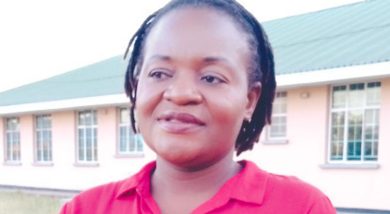Inadequate judges delay MLS, RBM case
The Malawi Supreme of Appeal yesterday failed to start hearing an appeal involving Malawi Law Society (MLS) and the Reserve Bank of Malawi (RBM) due to shortage of Supreme Court of Appeal Judges.
Both parties were set for the matter in which MLS is challenging the High Court’s decision to dismiss its application for judicial review of RBM’s directive, as registrar of financial institutions, that insurance companies should pay claimants directly during settlement of claims.

However, the court said it could not proceed with the matter because Supreme Court of Appeal judges Lovemore Chikopa, accompanied by justices of appeal Ivy Kamanga, John Katsala and Frank Kapanda, did not form a quorum.
Chikopa said there are only six Supreme Court of Appeal justices who can hear the matter because the seventh judge, Healey Potani, was part of the panel that handled the case when it came before the High Court.
He said: “In view of the number of available judges of the Supreme Court of Appeal, the matter will not proceed because we haven’t formed a quorum. The matter has to be adjourned until the new justices of appeal are appointed.”
Currently, the country’s highest court has seven judges following the retirement of four Justices of Appeal last year.
The seven are Rezine Mzikamanda (Chief Justice), Chikopa, Kapanda, Potani, Katsala, Kamanga and Charles Mkandawire.
The four who retired are former Chief Justice Andrew Nyirenda, Edward Twea, Dunstain Mwaungulu and Anaclet Chipeta.
In separate interviews yesterday, MLS president Patrick Mpaka, representing the lawyers’ body, Francisco Chikabvumbwa representing RBM and Madalitso Mmeta representing the Insurance Association of Malawi, are interested party in the case, all agreed with the court’s decision.
However, Mpaka asked the court to prioritise the case when President Lazarus Chakwera appoints new Supreme Court of Appeal judges.
He also proposed that the court should consider adding a clause to Supreme Court of Appeal Practice Direction of 2018 to allow less than seven Justices of Appeal to preside over matters.
Said Mpaka: “Are we going to carry on like this? Since you are the ones who issued this practice direction, is it possible to consider to say if we are inadequate maybe we sit the minimum of three or five?” he said.
Section One of Practice Direction states that “When the Supreme Court of Appeal is determining any matter, other than an interlocutory matter, it shall be constituted by the Chief Justice presiding and eight other Justices of Appeal.”
In the matter, MLS is challenging RBM’s directive initiated against the background of suspected deception when lawyers or claim settling agents receive claims from insurance firms to channel them to claimants.
Before the RBM directive, issued around August 15 2014, financial institutions, including insurance firms, were paying claimants through legal firms that were representing them or claim settling agents.
In the High Court judgement, Potani refused to agree with MLS that the registrar of financial institution’s directives were inconsistent with the Legal Education and Legal Practitioners Act.





